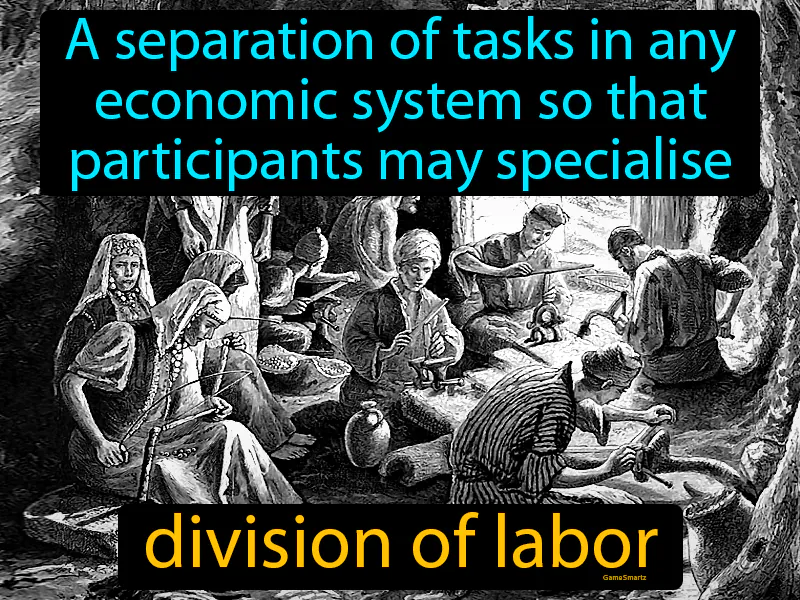Division Of Labor
Division Of Labor: Easy to understand
In early farming societies, the division of labor allowed people to specialize in different tasks like farming, tool-making, or weaving, which made communities more efficient and productive. This specialization was crucial as it responded to the need for better resource management and supported growing populations in cities. By dividing work based on skills, people could produce more goods and trade them with others, leading to economic growth. Today, division of labor is still important as it helps businesses and communities function smoothly by allowing people to focus on what they do best. For example, in a hospital, doctors, nurses, and administrative staff each have specific roles, which ensures patients receive the best care possible.

Practice Version

Division Of Labor: A separation of tasks in any economic system so that participants may specialise. Division of labor. In history, division of labor refers to people focusing on specific jobs to increase efficiency and productivity in society.